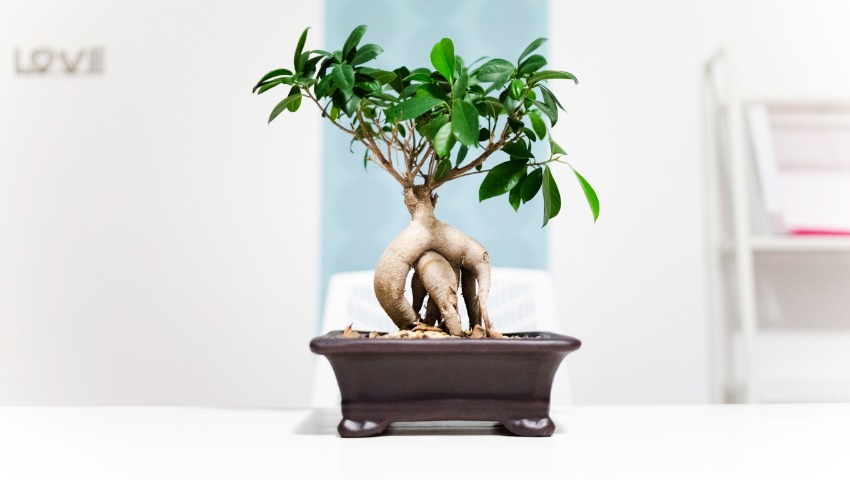You may be vaguely familiar with feng shui (uhm…it’s a Chinese organizing thing, right?). Whether you feel the flow of chi or not, the issues that the practice aims to tackle with energy optimization have scientifically established effects on your performance.
Clearing clutter? Purifying the air you breathe? Adding personal touches to your space? They’re all familiar ways of improving the daily 9 to 5. Here’s how to blend ancient Chinese tradition with empirically backed changes to get the best of both worlds and optimize your work space.
Clear the Clutter
The least (or most) spiritual aspect of this process is getting rid of stuff on your desk that you don’t need at your fingertips. Stack of papers? File or recycle them! Business cards? Digitize the info. Cup of eight colored highlighters…even though you never use highlighters? You’re getting the hang of it. Feng shui guidelines recommend keeping 50 percent of your desk space clear. No one needs references to peer-reviewed articles to let them know that a clean room feels better than a messy, crowded one.
Let There Be Light
In feng shui, the fire element is represented by light, and the color, intensity and placement of light need to be considered. Scientific research increasingly shows that light is a nutrient—one that we’re deprived of when we sit in an office all day, where fluorescent bulbs can also have detrimental effects on our biology.
Make sure you get 30 to 60 minutes of natural morning light before you get to the office, to set your circadian rhythm. At your desk, if changing the lightbulbs around you isn’t an option, get a table lamp with a halogen bulb (which has full-spectrum light) or a portable light-therapy device to prop on your desk. Also, take breaks outside and get a dose of the real stuff.
Plant Friends
The wisdom of feng shui identifies plants as representation of the wood element. Different plants help achieve balances, depending on factors such as their symbolism, upkeep and potential purifying properties. But this article from The Atlantic points to evidence that rejects the findings of a NASA study claiming that a few house plants can purify the air.
But plants are still green, pretty and alive, and they mentally invigorate spaces dominated by inanimate tools. Plus, a study by Journal of Physiological Anthropology concluded that “active interaction with indoor plants can reduce physiological and psychological stress, compared with mental work.”
Bagua Mapping
OK, this one is full-on feng shui. A bagua map is a grid-patterned key for which areas of your desk correspond to certain energies. To implement feng shui principles at your desk, place items associated with the desired effects in the correct grid. For example, the lower left corner of your desk is related to wisdom and knowledge, so you might place a dictionary or a book you’re reading to learn something new in that area.
If you don’t subscribe to the energetic properties of mapping, it could just be a handy blueprint for reorganizing your desk. A study by Princeton University Neuroscience Institute concluded that a cluttered physical environment decreased focus and the ability to process information due to over-stimulation of the visual cortex.
Conclusion: Clear It
Whether you’re the type looking for objective ways to increase productivity or are more about mantras in the morning, ancient Eastern wisdom and objective data agree: Dust off that ficus and give your desk a little TLC to enhance your workplace wellness.




